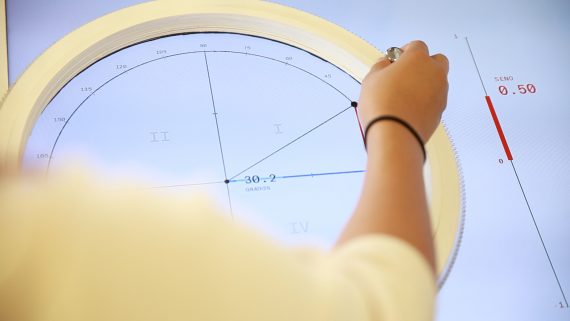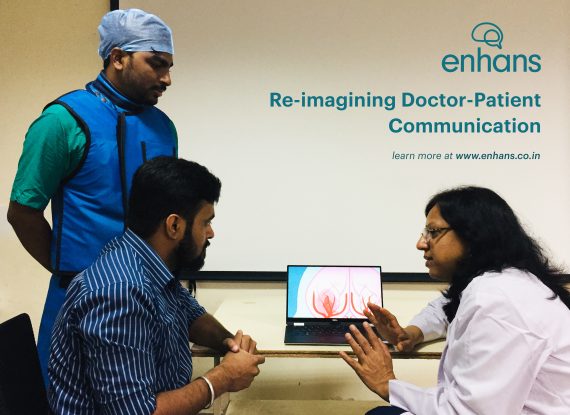Tumbler: accessible sound player for people with dementia
Team
Company | Institution
Category
Type
Project description
The project “Everyday Sounds of Dementia” aims to research the potential of sound and soundscapes in design of technology and services for people living with dementia. Research has demonstrated the cognitive and psychological benefits of music for people with dementia. In the Everyday Sounds of Dementia project, we further expand this body of knowledge by exploring the role of everyday sounds or non-musical ordinary sounds in evoking memories and conversations to provide meaningful social activity for people with dementia and their relatives. However, most audio-based technologies are inaccessible or difficult to use for people with dementia due to cognitive and physical disabilities. This project contributes to the positive well-being and quality of life of people living with dementia, and their caregivers, by supporting day-to-day functioning in their homes, and during times of transition to higher levels of care. It uses design-research and participatory approaches to develop interactive soundscapes (collages of everyday ambient sounds ) to calm, reduce agitation, stimulate, excite and engage people living with dementia in times of anxiety, stress or boredom, and promote meaningful activity in high-risk situations. The insights of this project have resulted in the Tumbler prototype, which is an accessible sound player for people with dementia to play everyday sounds and provide meaningful sound-based activity at home.
The number of people with dementia is rising at a rapid pace. Currently, there is no effective pharmacological treatment to cure or slow down the progression of dementia. Therefore, there is an urgent need for non-pharmacological approaches that can improve the overall wellbeing of people with dementia by reducing stress or agitation and providing life enjoyment and social experiences. Research has demonstrated the cognitive and psychological benefits of music for people with dementia. In the Everyday Sounds of Dementia project, we further expand this body of knowledge by exploring the role of everyday sounds or non-musical ordinary sounds in evoking memories and conversations to provide meaningful social activity for people with dementia and their relatives. However, most audio-based technologies are inaccessible or difficult to use for people with dementia due to cognitive and physical disabilities.
We present the Tumbler: an accessible sound player for people with dementia to play music and soundscapes at home with their partner or relative. The Tumbler resulted from a six-month co-design process that intensively involved three couples living with dementia independently at home to explore, design, and evaluate a sound player prototype. First, we conducted a probe study where the participants used a speaker and audio recorder at home to explore how sound can contribute to everyday habits and activities at home. Secondly, we designed three mockup sound players based on familiar music devices, such as a music box, a radio, and a record player, to explore potential interaction design choices tailored to the participants' remaining abilities. These mockups enabled the participants to provide feedback and comment on the interaction design early in the design process. Based on the insights from the probe study and the mockups, we designed the Tumbler that embedded the values and preference expressed by the participants in an accessible sound player to support meaningful sound-based activities at home.
The Tumbler was designed as a minimal and straightforward interface to empower people with dementia to explore meaningful audio content at home. People with dementia can play interactive soundscapes by tilting, rolling, or shaking the portable speaker. When the speaker is tilted upwards, it plays soothing and relaxing background soundscapes. When the user tilts or tumbles the Tumbler, it plays a short playful sound fragment to provide stimulation or activation. Shaking the device will trigger a voice-narrated anecdote related to a meaningful memory of the person with dementia to trigger reminiscence or conversations.
The initial user study revealed how the tangible qualities of the Tumbler enabled non-intuitive and inviting interactions with sound, as the participants can engage in a sensemaking process of linking their interactions with the device with the audio output. The explorative nature of the interactions does not require cognitive abilities such as performing tasks or making abstractions, as the open-ended interactions with the Tumbler cannot be 'incorrect' or wrong. Future work will investigate the long-term impact of the Tumbler on improving the wellbeing of people with dementia at home.
The number of people with dementia is rising at a rapid pace. Currently, there is no effective pharmacological treatment to cure or slow down the progression of dementia. Therefore, there is an urgent need for non-pharmacological approaches that can improve the overall wellbeing of people with dementia by reducing stress or agitation and providing life enjoyment and social experiences. Research has demonstrated the cognitive and psychological benefits of music for people with dementia. In the Everyday Sounds of Dementia project, we further expand this body of knowledge by exploring the role of everyday sounds or non-musical ordinary sounds in evoking memories and conversations to provide meaningful social activity for people with dementia and their relatives. However, most audio-based technologies are inaccessible or difficult to use for people with dementia due to cognitive and physical disabilities.
We present the Tumbler: an accessible sound player for people with dementia to play music and soundscapes at home with their partner or relative. The Tumbler resulted from a six-month co-design process that intensively involved three couples living with dementia independently at home to explore, design, and evaluate a sound player prototype. First, we conducted a probe study where the participants used a speaker and audio recorder at home to explore how sound can contribute to everyday habits and activities at home. Secondly, we designed three mockup sound players based on familiar music devices, such as a music box, a radio, and a record player, to explore potential interaction design choices tailored to the participants' remaining abilities. These mockups enabled the participants to provide feedback and comment on the interaction design early in the design process. Based on the insights from the probe study and the mockups, we designed the Tumbler that embedded the values and preference expressed by the participants in an accessible sound player to support meaningful sound-based activities at home.
The Tumbler was designed as a minimal and straightforward interface to empower people with dementia to explore meaningful audio content at home. People with dementia can play interactive soundscapes by tilting, rolling, or shaking the portable speaker. When the speaker is tilted upwards, it plays soothing and relaxing background soundscapes. When the user tilts or tumbles the Tumbler, it plays a short playful sound fragment to provide stimulation or activation. Shaking the device will trigger a voice-narrated anecdote related to a meaningful memory of the person with dementia to trigger reminiscence or conversations.
The initial user study revealed how the tangible qualities of the Tumbler enabled non-intuitive and inviting interactions with sound, as the participants can engage in a sensemaking process of linking their interactions with the device with the audio output. The explorative nature of the interactions does not require cognitive abilities such as performing tasks or making abstractions, as the open-ended interactions with the Tumbler cannot be 'incorrect' or wrong. Future work will investigate the long-term impact of the Tumbler on improving the wellbeing of people with dementia at home.



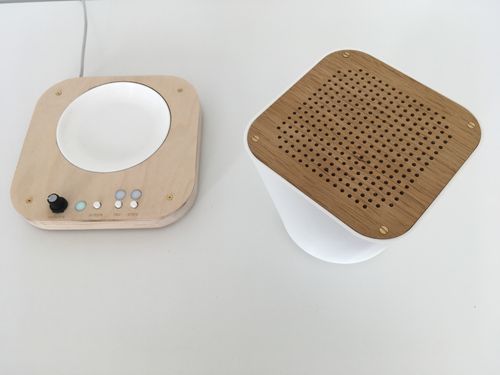
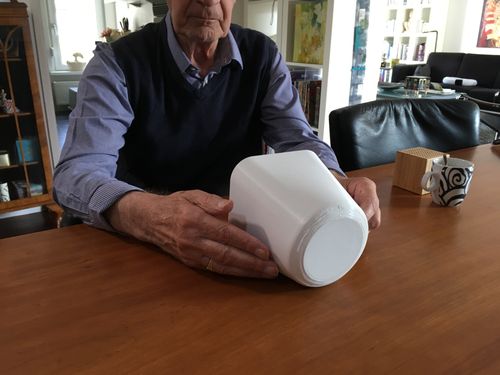
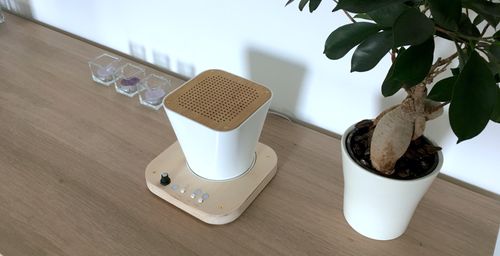
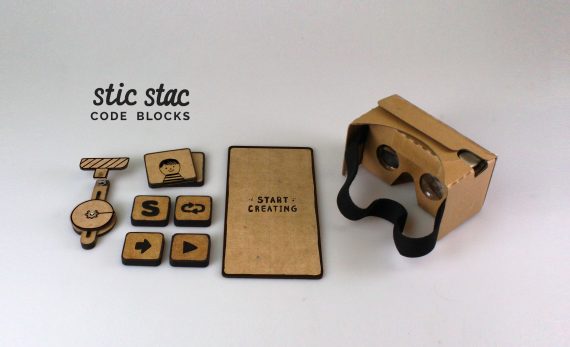

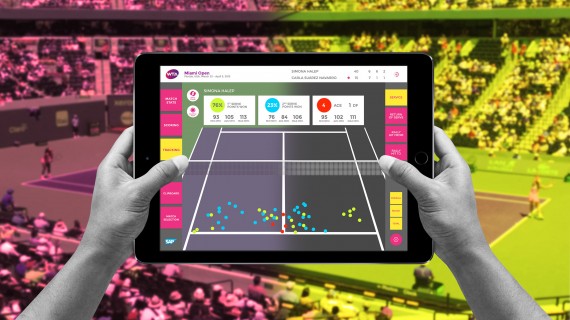
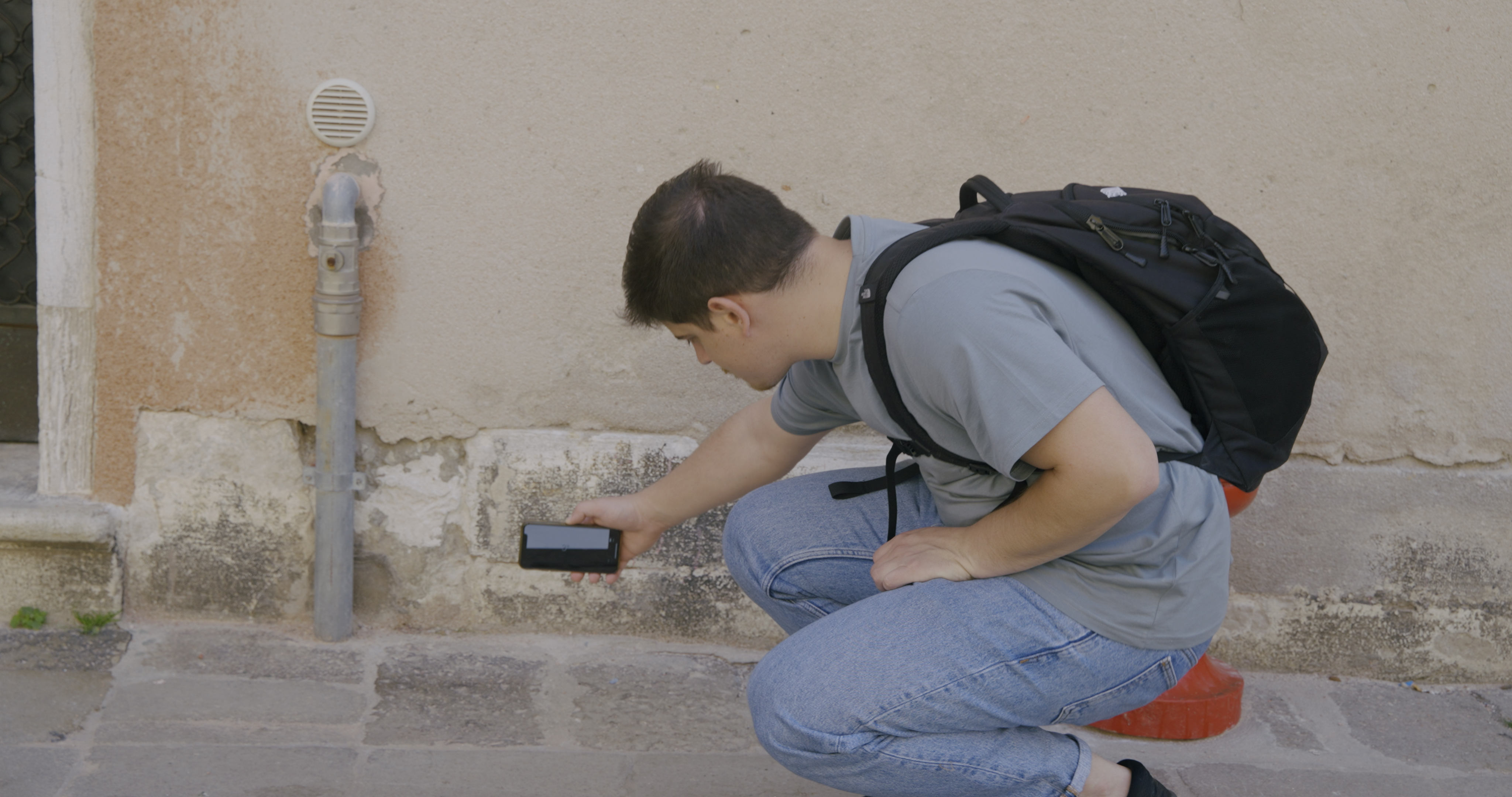

.png)

